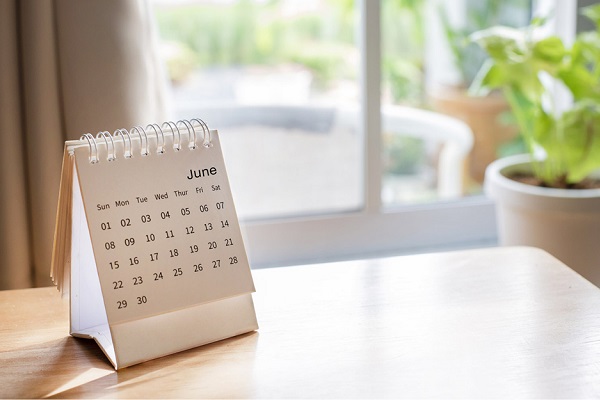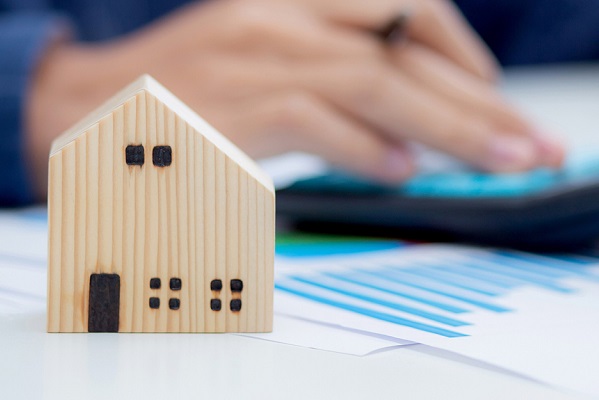With many people now working from home because of COVID-19, some of the expenses your employer normally pays – such as electricity, heating and cooling – are now coming out of your wallet.

Although some employers may provide a daily allowance to help with these additional costs, if you’re not receiving anything it’s important to claim your extra expenses at tax time.
Normally, this can be a time-consuming process involving lots of recordkeeping and splitting your expenses between personal and private use.
To make things simpler, the ATO has announced shortcut rules if you find yourself working from your kitchen table or sofa for the first time.
New shortcut rules
Under these temporary measures, if you are working from home due to COVID-19 you can claim a simplified home office tax deduction of 80 cents per work hour for your running expenses, rather than needing to record and apportion the private part of these costs.
Your running expenses include things like lighting; heating and cooling; cleaning; repairs to equipment, furniture and furnishings; and office expenses like printer paper and stationery. The shortcut rate also covers the cost of your internet, phone and computer equipment.
The decline in value (or depreciation) of the furniture and fittings you use in your home office is also covered if you use the shortcut method.
Items such as tea, coffee and general household items like toilet paper, cannot be claimed. Expenses such as rent, mortgage interest, property insurance, rates and land tax are also ineligible.
Substantiating your claim
Before you get too excited about claiming, it’s essential to remember you are only entitled to a deduction for expenses directly related to earning income. You must have actually spent the money and not been reimbursed, and you must have records to support your claim.
Fortunately, the shortcut method only requires you to keep a record of the number of hours you worked from home as evidence of your claim. This can be in the form of a time sheet, or an Outlook calendar or diary entry.
If you are audited by the ATO, it’s likely you will also be asked for supporting evidence from your employer. The shortcut arrangements are in place for running expenses incurred from 1 March to 30 June 2020. The ATO intends to review the arrangement for the next financial year as the COVID-19 situation progresses.
Eligibility for the shortcut rules
The simplified rules for claiming work from home expenses are only available to employees working from their home. If you are a sole trader or run a small business from home, you must use the normal business deduction rules.
You also need to be working from home to fulfil your employment duties and not just occasionally checking emails or taking calls.
The shortcut rules allow multiple people living in the same house to claim the new 80 cents per work hour rate, so both members of a couple can claim a deduction at tax time. You are not required to have a dedicated work area, which is a requirement under the normal working from home rules.
If you normally work from home a few days a week, you will need to keep two sets of records – one covering the period from 1 July 2019 to 29 February 2020 and a second one covering the period from 1 March 2020 to 30 June 2020 if you decide to use the shortcut method.
Current rules for working from home
Although the simplicity of the shortcut method is attractive for claiming your running costs, you can choose to use the pre-existing rules if you prefer.
Currently there are two ways to calculate your running expenses: claiming a fixed rate of 52 cents per work hour, or calculating your actual expenses.
Under the fixed rate method, you claim 52 cents an hour for your running expenses. You then work out separately your costs for phone and internet usage, computer consumables and stationery, and the depreciation on your computer. To claim, you need to keep records of the actual hours you work, or a four week diary to show your usual pattern of working at home.
Dedicated home offices
If you have a dedicated work area at home, you can choose to calculate your actual running expenses. These costs (plus depreciation on your equipment, furniture and furnishings over $300) need to be apportioned into personal and work related amounts.
For your phone and internet expenses, you can claim up to $50 with limited documentation, or calculate your actual expenses and apportion them on a reasonable basis.
Before opting for the new shortcut method, it’s worth having a chat, as the best method depends on your individual situation. Although there is less administration with the shortcut method, it may not provide you with the biggest tax deduction.
Call us to discuss how working from home will affect your tax preparations this financial year.
How the two methods compare
Annika is a lawyer who now works 40 hours a week from home due to COVID-19.
During May, Annika keeps track of her mobile phone and internet usage. She finds 60 per cent of her mobile phone usage and 70 per cent of her internet is work-related.
Before deciding which method to use, Annika crunches the numbers for her running expenses:
Shortcut method
| • 40 hours per week x 80c x 16 weeks (March to June) = $512.00 |
| • Phone and internet cannot be claimed (included in the 80c rate) = $0 |
| Claimable amount for March to June = $512.00 |
Current method
| • 40 hours per week x 52c x 16 weeks = $332.80 |
| • 60% x $89 monthly phone bill x 4 months = $213.60 |
| • 70% x $79 monthly internet bill x 4 months = $221.20 |
| Claimable amount for March to June = $767.60 |
Did you enjoy this article?
Click below to share it
More News Articles

Get your SMSF ready for 30 June
The rules around SMSFs are strict and if you don’t do things the right way, your fund could end up paying extra tax

Tax Alert June 2022
With attempted GST fraud on the rise and certain family trust payments under a cloud, the tax regulator is stepping up scrutiny of more transactions

Combine Your Super into One Account to Save
Before you change out of a super fund, there are few things you need to do

Federal Budget 2022-23 Analysis
A balancing act Billed as a Budget for families with a focus on relieving short-term cost of living

Avoid the Rush: Get Ready for June 30
Starting early is essential if you want to make the most of the opportunities on offer when it comes to your super and tax affairs
Subscribe to Our Mailing List & Connect Through our Socials
While you may have come to us from a variety of sources, the time has never been better to join us.
Subscribe to our mailing list and connect through out socials to keep up to date with our latest news and get some tips.





